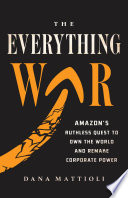

The book begins by exploring how warfare has evolved in the modern era, transitioning from traditional battlefield confrontations to multifaceted conflicts that include cyber warfare, economic sanctions, and information dominance. The author argues that modern warfare is not just about military might but also involves the manipulation of perceptions and narratives. This shift necessitates a new understanding of conflict, where non-state actors and digital platforms play crucial roles. The implications of this transformation are profound, as they affect national security, international relations, and even everyday life. Understanding this new landscape is essential for policymakers, military strategists, and citizens alike.
Continue readingA significant portion of the book is dedicated to the impact of technology on warfare. The author delves into advancements such as artificial intelligence, drones, and cyber capabilities, highlighting how these technologies have changed the dynamics of conflict. For instance, the use of drones allows for precision strikes without risking soldiers' lives, while AI can analyze vast amounts of data to predict enemy movements. However, the author also warns of the ethical implications and potential for misuse of these technologies, emphasizing the need for regulations and guidelines to govern their use in combat scenarios.
Continue readingThe concept of information warfare is another crucial theme in the book. The author discusses how information is weaponized to influence public opinion and destabilize governments. This includes the use of social media to spread misinformation and propaganda, which can lead to real-world consequences. The book examines case studies of recent conflicts where information warfare played a pivotal role, such as the Russian interference in the 2016 U.S. elections. The author stresses the importance of media literacy and critical thinking skills for individuals to navigate this complex information landscape.
Continue readingThe book also addresses how globalization has transformed the nature of conflict, making it more interconnected and complex. The author argues that conflicts in one part of the world can have ripple effects globally, influenced by economic ties, migration, and communication technologies. This interconnectedness means that traditional notions of sovereignty and territoriality are increasingly challenged. The author calls for a reevaluation of international relations and conflict resolution strategies to account for this new reality, advocating for collaboration and dialogue among nations.
Continue readingLooking ahead, the author speculates on the future of warfare, considering emerging technologies and potential new forms of conflict. The rise of autonomous weapons, for example, raises ethical questions about accountability and decision-making in warfare. Additionally, the author discusses the potential for climate change to exacerbate conflicts over resources, as nations compete for dwindling supplies of water and arable land. The future of warfare is portrayed as a complex interplay of technology, environment, and human behavior, requiring adaptive strategies and innovative thinking.
Continue readingIn the face of modern warfare's challenges, the author emphasizes the importance of resilience—both at the individual and societal levels. Resilience involves the ability to withstand and recover from shocks, whether they are military, economic, or social in nature. The book provides strategies for building resilience, such as fostering community ties, investing in education, and promoting mental health. The author argues that a resilient society is better equipped to face the uncertainties of modern conflict and to thrive in an increasingly volatile world.
Continue readingFinally, the book tackles the ethical considerations surrounding modern warfare. The author raises questions about the moral implications of using advanced technologies, such as drones and AI, in combat. There is a call for stronger governance frameworks to ensure that warfare adheres to ethical standards and international laws. The author advocates for a collaborative approach among nations, technologists, and ethicists to develop guidelines that govern the use of technology in warfare, ensuring that human rights are respected and civilian lives are protected.
Continue readingThe reading time for The Everything War depends on the reader's pace. However, this concise book summary covers the 7 key ideas from The Everything War, allowing you to quickly understand the main concepts, insights, and practical applications in around 23 min.
The Everything War is definitely worth reading. The book covers essential topics including The Nature of Modern Warfare, The Role of Technology in Warfare, Information Warfare and Propaganda, providing practical insights and actionable advice. Whether you read the full book or our concise summary, The Everything War delivers valuable knowledge that can help you improve your understanding and apply these concepts in your personal or professional life.
The Everything War was written by Dana Mattioli.
If you enjoyed The Everything War by Dana Mattioli and want to explore similar topics or deepen your understanding, we highly recommend these related book summaries:
These books cover related themes, complementary concepts, and will help you build upon the knowledge gained from The Everything War. Each of these summaries provides concise insights that can further enhance your understanding and practical application of the ideas presented in The Everything War.